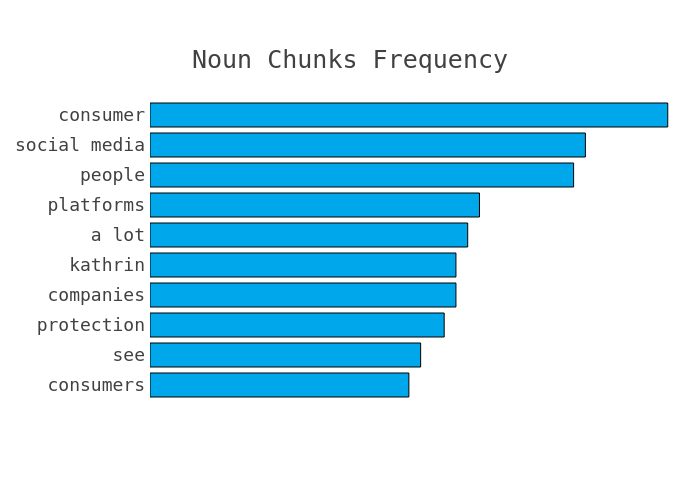Trust me, I am a seller: regulating online business accounts
9 Dec 2021 10:15h - 11:45h
Event report
Regulation of social media is a major regulatory challenge with regard to human rights issues, such as freedom of expression or the right to privacy and economic issues, such as consumer protection.Speakers debated whether self-regulation is the best tool to deal with consumer rights violations. According to Mr Azad Mammadli (Senior Lawyer at the Absheron Hotel Group) if applied sincerely and comprehensively by social media companies, it is the best tool. Self-regulation would avoid the state intervention deemed unnecessary by those who believe that any involvement from the public side in private activity, such as state or jurisdictional interference, should be avoided. However, the more social media companies and businesses are regulated, the more chance consumers have of being compensated.
Ms Kathrin Morasch (Legal clerk at the German district court) disagreed with Mammadli, noting that self-regulation is not the best course of action. The only thing that really helps is having clear rules and not only having guidelines, such as the ones the EU is trying to formulate.
Mammadli called for better international networking of authorities from all over the world to act against cross-border consumer violations.
The internet economy is coming under scrutiny these days because of the exploitation of consumer data by platforms without appropriate consent and privacy protocols. Ms Shradha Pandey (a final year Law and Policy student at the National Law University, India) discussed the legal aspect of controlling and analysing these businesses, and how to protect the data of the individual while also carrying out business online. To compete with large-scale platforms, micro and small-scale businesses must cut expenses. As a result, they compromise on customer data protection. An equal playing field can only be achieved by adequate regulation. Pandey noted that a strong grievance redress mechanism is one of the basic steps to laying a proper foundation to go forward in the future.
Ms Yawri Carr (a Master’s student at Technische Universität München/Konrad-Adenauer-Stiftung) added that instead of simply attempting to develop more regulations, new notions such as ethical design should be considered.
On the issue of how consumers can be protected from fake online businesses, Morasch suggested establishing consumer protection centres, providing knowledge and literacy to small businesses and social media users. Pandey also commented on the importance of digital literacy, noting that promoting grassroots organisations or empowering people to educate themselves can be one of the strongest steps to take. Media companies can go a long way in helping in this regard.
Speakers concluded that legal regulation cannot be the only solution for upholding consumer rights. It must be supported by consumer education, in which consumer organisations play an important role.
By Boris Begovic
Session in numbers and graphs




Automated summary
Diplo’s AI Lab experiments with automated summaries generated from the IGF sessions. They will complement our traditional reporting. Please let us know if you would like to learn more about this experiment at ai@diplomacy.edu. The automated summary of this session can be found at this link.Related topics
Related event

Internet Governance Forum (IGF) 2021
6 Dec 2021 10:00h - 10 Dec 2021 18:00h
Katowice, Poland and Online
